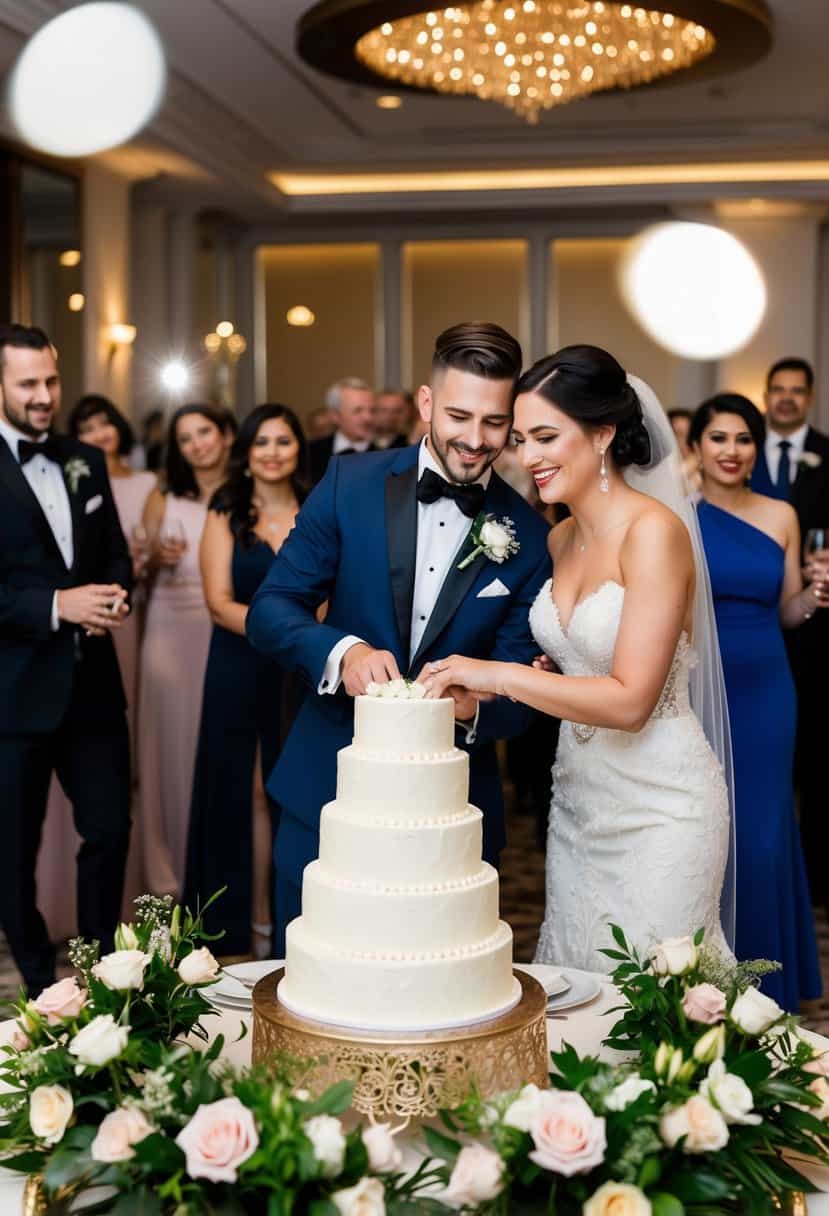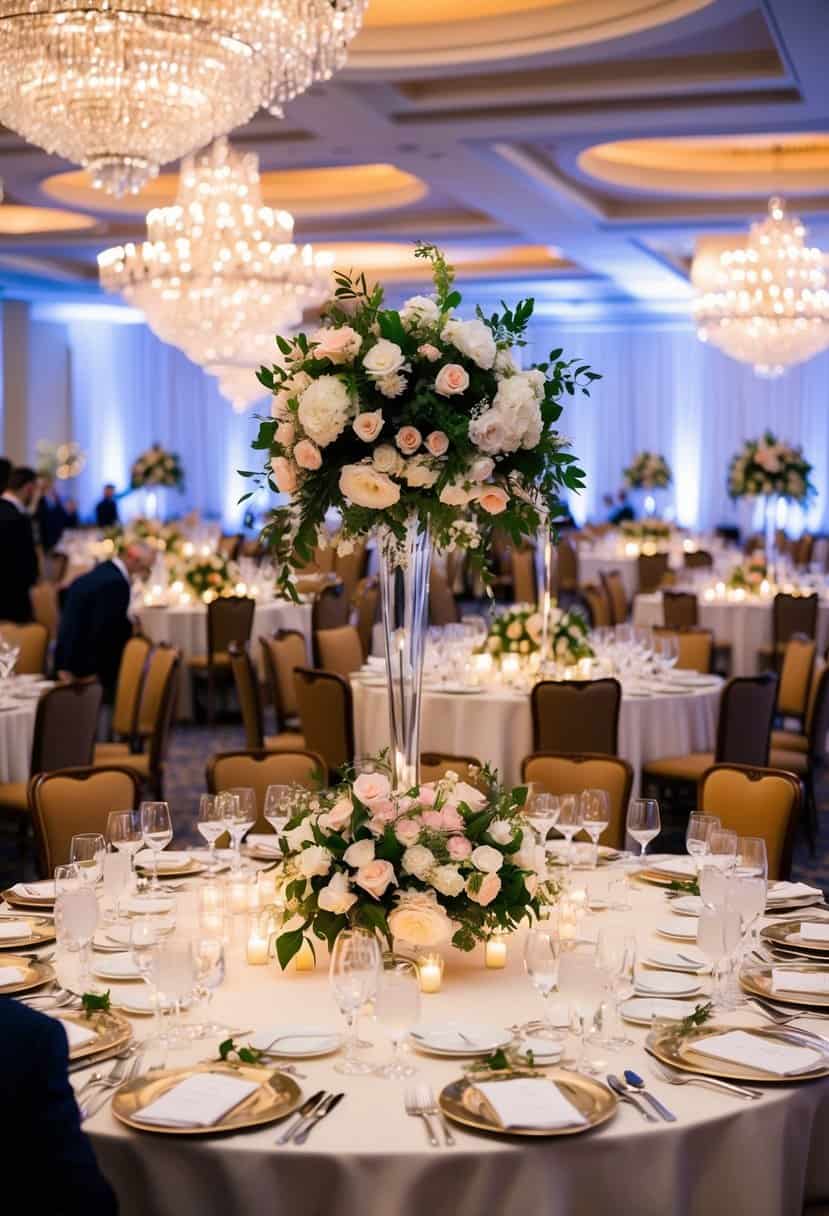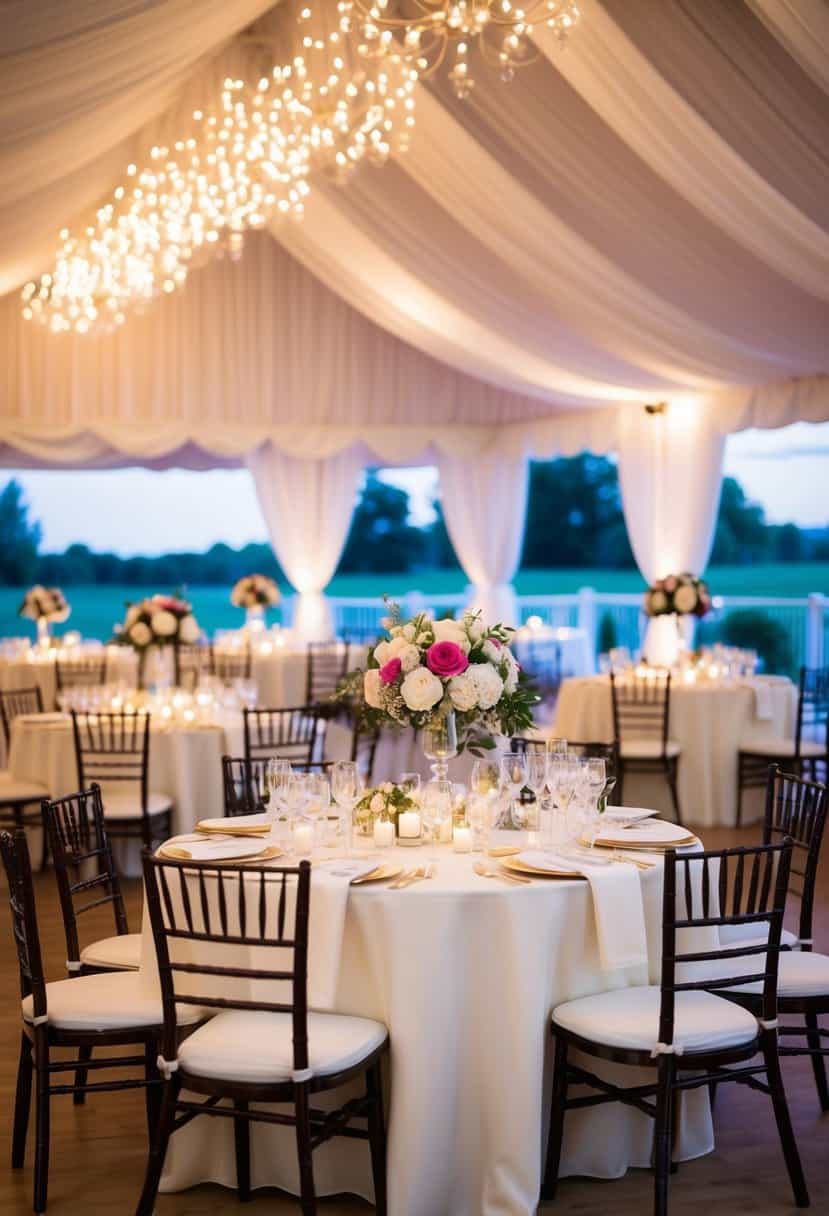How Much Does the Average Couple Spend on a Wedding in the UK? A Detailed Budget Breakdown
Planning a wedding is an exciting journey, but it can also be a bit of a sticker shock when you dive into the costs. For those of you in the UK, a recent national survey highlighted that the average couple spends about £20,700 on their wedding. This number has been influenced by rising prices in recent years. As you gather details for your big day, it’s helpful to know what other couples are spending.

Your wedding budget might cover everything from the venue to catering, which are often the biggest expenses. For example, the costs can spike during popular wedding months between May and August. But don’t worry! If you’re thinking of tying the knot in the colder months like January, you might find savings, as winter weddings tend to be less expensive.
Whether you’re dreaming of a grand celebration or an intimate affair, managing your wedding spend will make sure your day is both perfect and within your budget.
Understanding the Average Cost of a Wedding in the UK

Weddings in the UK can be quite an expense, with costs fluctuating based on location and individual choices. Below, you’ll find information on how much couples typically spend, along with key factors that can influence these costs.
National Averages and Regional Variations
The average wedding cost in the UK in 2024 is expected to be around £20,775. This figure includes basic expenses but does not cover extras like rings and honeymoons, which can increase the total to about £25,952.
Regional differences play a large role in these expenses. London, for example, often sees higher costs due to its popularity and demand. Conversely, smaller towns and rural areas might have lower costs because of reduced demand and availability of suppliers.
To understand these variations, a national wedding survey reports significant differences between urban and rural settings, influenced by factors like venue pricing and local vendor charges.
Key Factors Influencing Wedding Costs
Many factors can impact how much you’ll spend on your wedding. A significant one is inflation, which has driven up prices for essentials like flowers and food. The number of guests also affects costs, as larger guest lists require more accommodations and resources.
Time of year is another factor. Weddings are costliest between May and August, when high demand increases prices. Choosing a winter month could save money, as low-demand months such as January and February offer more affordable rates.
Vendor selection and personal preferences, like designer dresses or high-end venues, also play a part. An understanding of these choices helps you manage your budget effectively.
Budgeting for Your Big Day

Planning your wedding can be both exciting and a bit overwhelming. It’s important to have a clear budget plan to guide your spending and help you avoid unexpected costs. Here’s how you can effectively manage your wedding expenses.
Creating a Wedding Budget Plan
Start by outlining all potential expenses. List every aspect of your wedding, from the venue to the small details like favors. A good way to begin is by using a wedding budget planner. This tool can help you track and organize your spending.
Divide your budget into categories. Common areas include the venue, attire, catering, and photography. Allocate percentages based on importance to you. For example, in a typical wedding budget breakdown, you might spend 30% on the venue and 10% on music.
Don’t forget to set aside some funds for unexpected expenses. Extra costs often pop up, whether it’s for alterations or last-minute decorations. Having a contingency fund can save you stress later on.
Strategies for Managing Wedding Expenses
Look for ways to save without sacrificing quality. Consider booking your venue on a weekday or during off-peak seasons. Many venues offer discounts for these times which can significantly lower your costs.
DIY options can also be budget-friendly. From invitations to centerpieces, you might find creating some elements yourself is less expensive. Plus, it adds a personal touch to your wedding.
Negotiate with vendors. Discuss your budget constraints with them, and ask if they can offer a package deal or a discount. Building a good relationship with your vendors can sometimes lead to special rates or extra services at no added cost.
The Significant Expenses

When planning a wedding, costs can add up quickly, especially in key areas like the venue, attire, and photography. These are some of the most significant expenses you’ll need to consider.
Venue and Catering Costs
The venue is often the largest wedding expense. Many couples spend a good chunk of their budget on booking their dream location. Prices can vary widely based on location, size, and the amenities offered. Some venues include basic catering in their packages, while others may require you to hire an external caterer. This can mean additional costs for food, drinks, and servers. Make sure to check if the venue provides tables, chairs, and linens as part of the rental.
Attire and Beauty
Your wedding dress is another major expense. The average cost of a wedding dress can put a noticeable dent in your budget, depending on your preferences. Bespoke gowns might be pricier but add a personal touch. Don’t forget other attire costs, like suits for the groom and potential bridesmaid dresses. Beauty expenses include bridal hair and makeup, often requiring a professional stylist. Booking trials in advance can ensure your look is perfect and may save you from unexpected surprises on the big day.
Photography and Videography
Capturing your special moments professionally can be one of the best investments. Hiring a wedding photographer ensures you get quality photos to remember your day. Packages often vary; some include pre-wedding shoots, while others might offer albums and prints as part of the deal. Videography is equally important for many, providing a dynamic record of your wedding. Costs can differ based on experience and package inclusions, so it’s worth spending time comparing services and portfolios.
Additional Wedding Costs

Planning a wedding involves many hidden expenses that couples might not initially consider. These extra costs can add up quickly and impact your overall budget. It’s important to account for various elements like decor, entertainment, and cake to ensure your big day goes smoothly and looks as beautiful as you’ve imagined.
Decor and Stationery
Wedding decor sets the mood for your celebration. Items like table centerpieces, floral arrangements, and lighting are common. You might also consider extras such as chair covers or a themed photo backdrop.
Wedding stationery includes invitations, RSVP cards, and place cards. Customizing these can be costly, especially with premium materials or complex designs. Many couples spend more on personalized options. Be sure to plan for these costs to create a beautiful setting for your day.
Entertainment and Transport
Wedding entertainment often involves hiring musicians, DJs, or live performers to keep your guests engaged. Costs vary based on the talent and duration. A live band might cost more than a DJ, but it could offer a unique atmosphere.
Wedding transport is another expense to consider. Whether it’s a classic car for the bride and groom or shuttle services for guests, make sure transport fits your style and budget. Consider elegant options for memorable photos and an enjoyable experience.
Cakes and Favours
The wedding cake is a centerpiece at many receptions. The cost can range widely based on the design, size, and complexity. Custom cakes with intricate details or multiple tiers tend to be pricier. The average cost of a wedding cake can surprise some couples.
Wedding favours are small gifts for your guests to thank them for attending. These can range from personalized trinkets to edible treats. While not as major as other expenses, they are a thoughtful touch and can add to your spending, so plan accordingly.
Timing Your Wedding to Your Budget

Timing your wedding can significantly influence your costs. By choosing the right season and considering guest numbers and the day of the week, you can align your wedding plans with your budget.
Choosing the Right Season and Date
The time of year you choose for your wedding can greatly affect costs. Typically, summer and early autumn weddings are more expensive due to higher demand. Consider a winter wedding or an off-peak season if you want to save money. These times often come with lower venue prices and more availability for vendors.
In the UK, months like January and February tend to have lower costs. Be mindful that holidays can affect prices, with venues and services potentially costing more. Planning around these times can be a smart way to manage your budget effectively.
The Impact of Guest Count and Day of the Week
Your guest list is another key factor in determining costs. More guests mean more expenses for food, drinks, and seating. Consider a smaller guest count if you need to stick to a tighter budget.
Total wedding costs often rise with more attendees, so trimming the list can lead to big savings.
Additionally, the day of the week you choose can influence costs. Saturdays are traditionally the most popular and expensive days to host a wedding. Opting for a weekday wedding or even a Sunday can reduce costs significantly. It’s an excellent way to free up budget for other aspects of your special day.




